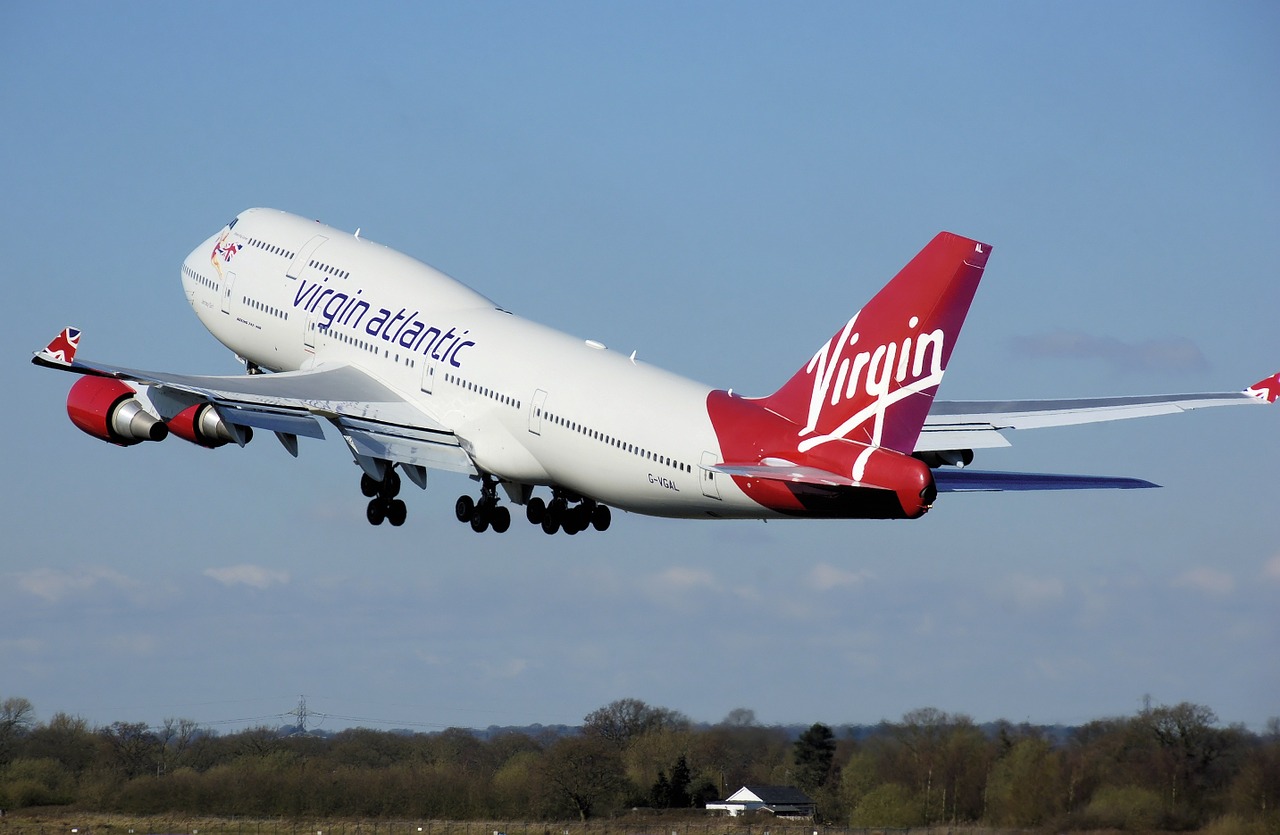
British airline Virgin Atlantic has announced that it has won the support of its creditors for a £1.2 billion rescue plan that will keep it running at least the next 18 months.
According to Virgin Atlantic, shareholders, banks, aircraft owners and suppliers owed money have approved the £1.2 billion rescue plan. The airline said "this milestone" puts it in a position to "rebuild its balance sheet" and "welcome passengers back".
Earlier, Virgin Atlantic warned that it would run out of cash by September without the deal. The airline will now await the approval from the High Court in London, which is scheduled on September 2.
Rescue deal
The £1.2 billion rescue plan includes £400 million in new cash, half of which will come from its main shareholder, Sir Richard Branson's Virgin Group.
Like the rest of the airline industry, Virgin Atlantic was hit hard by the coronavirus pandemic as demand for air travel dwindled. While it will be reducing its workforce by 3,500 jobs, the airline said the remaining 6,500 employees should be secure.
According to Robert Boyle, a former director of strategy at British Airways-owner IAG who now runs his own aviation consultancy, Virgin Atlantic's unsecured creditors would end up being paid 20% less than they were owed under the said deal while their repayments will also be rescheduled.
Boyle pointed out that additional cash secured under the rescue deal did not "seem like enough", with Branson having to ask the government for £500 million and having his request denied.
Virgin Australia's voluntary administration
In April, Virgin Australia entered voluntary administration a day after Branson sought government support for the country’s second biggest airline.
According to the airline, it had entered voluntary administration while it searches for financing to revive its business.
It hoped to eventually “emerge stronger on the other side of this crisis.”
Virgin Australia was the first major Asia Pacific airline to fall from loss of business due to the pandemic that forced carriers to cancel flights, ground planes and put staff on unpaid leave.
In a filing posted on the Australian stock exchange, the airline stated that it will continue operating all scheduled flights, “which are helping to transport essential workers, maintain important freight corridors, and return Australians home.”
Prior to the filing, Branson approached the Australian government asking it to intervene, warning that the carrier urgently needed help to maintain its operations.
The billionaire founder claimed that he already pumped $250 million into Virgin Group companies to address the pandemic and that he would offer his Necker Island estate in the Caribbean as collateral.
According to administrators, there was no immediate plan for any layoffs at the airline.
Virgin Australia chief executive officer (CEO) Paul Scurrah said the carrier stopped almost all of its operations in recent weeks, cutting flights by 95% and temporarily taking 80% of the workforce off the job.
Scurrah mentioned that the airline normally has 10,000 employees, with another 6,000 workers indirectly employed.
Vaughan Strawbridge, a partner at Deloitte in Australia who is serving as a voluntary administrator, said Virgian Australia has began searching for new owners or investors to help with the business’ recovery.
Strawbridge stated: “The intent is to seek to sell the majority, if not all of the business, as one.”
He mentioned that there are over 10 parties that have expressed interest in purchasing a stake in the company so far and that the carrier expects to have a better sense of its future over the next two months.
“This is not intended to be a long, protracted process,” he added.






